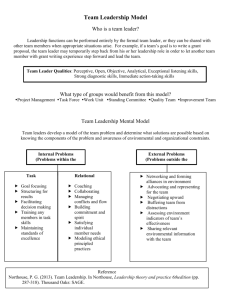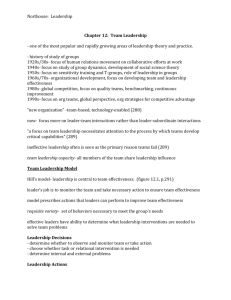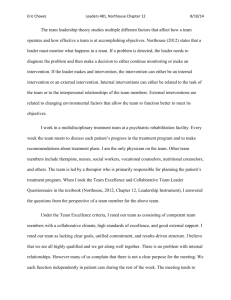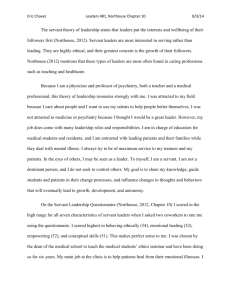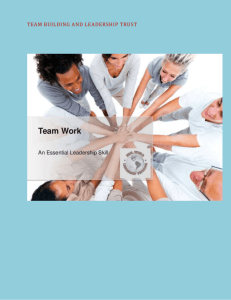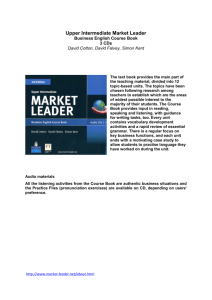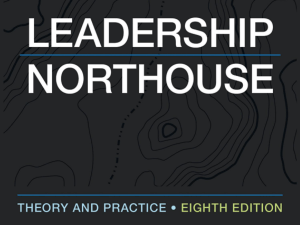File - Eric Chavez MD MMI
advertisement
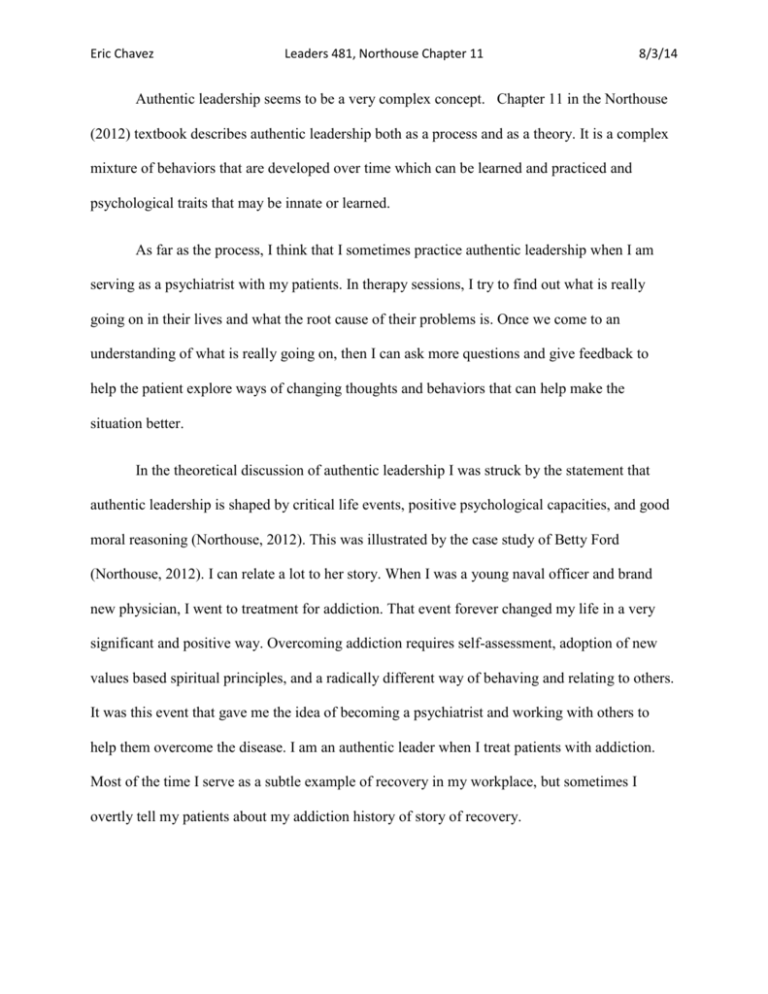
Eric Chavez Leaders 481, Northouse Chapter 11 8/3/14 Authentic leadership seems to be a very complex concept. Chapter 11 in the Northouse (2012) textbook describes authentic leadership both as a process and as a theory. It is a complex mixture of behaviors that are developed over time which can be learned and practiced and psychological traits that may be innate or learned. As far as the process, I think that I sometimes practice authentic leadership when I am serving as a psychiatrist with my patients. In therapy sessions, I try to find out what is really going on in their lives and what the root cause of their problems is. Once we come to an understanding of what is really going on, then I can ask more questions and give feedback to help the patient explore ways of changing thoughts and behaviors that can help make the situation better. In the theoretical discussion of authentic leadership I was struck by the statement that authentic leadership is shaped by critical life events, positive psychological capacities, and good moral reasoning (Northouse, 2012). This was illustrated by the case study of Betty Ford (Northouse, 2012). I can relate a lot to her story. When I was a young naval officer and brand new physician, I went to treatment for addiction. That event forever changed my life in a very significant and positive way. Overcoming addiction requires self-assessment, adoption of new values based spiritual principles, and a radically different way of behaving and relating to others. It was this event that gave me the idea of becoming a psychiatrist and working with others to help them overcome the disease. I am an authentic leader when I treat patients with addiction. Most of the time I serve as a subtle example of recovery in my workplace, but sometimes I overtly tell my patients about my addiction history of story of recovery. Eric Chavez Leaders 481, Northouse Chapter 11 8/3/14 Many of the behaviors and characteristics of authentic leadership align with good recovery from addiction. Despite working hard to change these behaviors and develop these characteristics, I know that I still have much work to do on myself. When I took the Authentic Leadership Self-Assessment Questionnaire (Northouse, 2012, Chapter 11), I scored low in all for dimensions. My scores were: self-awareness (15), internalized moral perspective (14), balanced processing (13), and relational transparency (12). I continuously work on self-awareness, and I also know that I can be self-deceptive at times (the hallmark of addiction). I do have strong values and an internalized moral perspective, but I scored myself in the low range because I can be swayed by the popular opinions of others and of groups. I make efforts to seek feedback and advice from other in balanced processing, yet I still tend to make most of my decisions on my own. Relational transparency is the most difficult for me. I am self-aware enough to admit that I do not always show others my real feelings and sometimes do not reveal my true thoughts. I believe that I have many positive psychological characteristics, especially hope, optimism, and resilience that would make me a good authentic leader. At the same time, it is evident that there are many behaviors of authentic leadership that I need to develop. Eric Chavez Leaders 481, Northouse Chapter 11 8/3/14 Reference: Northouse, P (2012). Leadership: Theory and Practice [Kindle for iPad version 4.3]. Retrieved from Amazon.com
